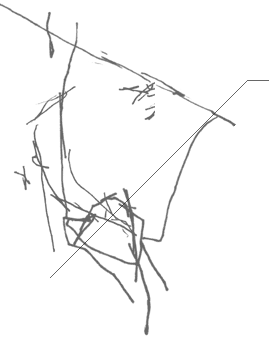Tuesday, March 3, 2026 |
||

|

by Michael Goldberg
Monday, May 20, 2002
What Exactly Is Moby, Anyway?
Is he an artist creating a new kind of music, or a technician assembling easy-listening hits?
|
|||
|
On the cover of 18, Moby is dressed in an odd plastic outfit that, together with the helmet he holds in his hand, looks like a spacesuit. Or, at least, a spacesuit costume. Which is appropriate. For while Moby seems to be on a journey of some sort, I have to wonder whether he's really exploring a new frontier or just salvaging reruns of "Lost in Space."
He could just as easily have dressed himself for an archeological dig. On 18, as on Play, Moby fashions a music of the present from sounds of the past. Fifteen years ago, the idea that a young man could create an album while sitting in a room of a Manhattan loft at a personal computer with a wall of equipment glowing nearby would have been science fiction. Imagine, you could have said, someday a man with a shaved head known simply as "Moby" will use bits and pieces of "sampled" old music along with simple parts that he actually plays himself, and the result will be an album that will sell 10 million copies. Would anyone have believed you? It is fascinating how quickly we — especially those who are young (or young at heart) — adjust to change. I remember, as a kid, thinking the moon landing wasn't any big deal; my parents, on the other hand, just couldn't get over it. When the future arrives, as it does each day, we modify our perspective slightly. We adjust — that or become dated, one of those old fogies living in the past. That's how such once-futuristic devices as cell phones, Palm Pilots and laptop supercomputers the size of an issue of Vanity Fair are already taken for granted. That is how someone like Moby, whose way of making music is more and more commonplace, is so easily accepted. And how his music is currently as mainstream contemporary as the now-dated music of Frank Sinatra once was. Moby's music isn't new. The melodies, the lyrics, the musical styles — we've heard it all before. From Brian Eno, from countless gospel and R&B groups, and other influences. 18 is like a mix album, only all the songs were actually "written," or at least constructed, by the DJ: Moby. None of this is a dis, so don't take it that way. 18, which I've listened to off and on for a few weeks, seems as sturdy, thought-provoking, emotionally moving and flat-out enjoyable as Play, which I also dug. But not because Moby has come up with anything particularly new. Moby's music isn't challenging or threatening or avant-garde. To call it easy listening would not be wrong. It's understandable that Play sold 10 million copies. Simple and familiar, Moby's music welcomes you with open arms. If it were playing in the background at The Gap or in the supermarket, it would not disturb anyone. And, in fact, Moby's music has played at The Gap and in supermarkets, and people grooved to it. Moby — a skinny white guy — looks about as unfunky as one can look. Yet much of 18 is quite soulful. There are gospel-influenced pieces and some funky R&B. Moby accomplishes this in two ways. He hires soulful singers, such as Jennifer Price, the voice on "In This World," and Angie Stone, who you'll hear on "Jam for the Ladies," or he samples a funky vocal, like the one that appears on "Another Woman," in which Barbara Lynn sings "You've got another woman somewhere around." This is kinda strange, though. In the old days, they'd get some seasoned session musicians and Otis Redding or Aretha into a studio in Memphis, and, with the right producer, create recordings that, to this day, can make you start to sweat just hearing them. Sometimes I wonder if Moby is delivering a kind of funk-lite, a music that is stripped of real feeling for a world that is semi-comatose. A world that just wouldn't be able to handle the real thing anymore. There is this question of whether Moby actually is a musician, and whether this music is really his. To the first question, I would have to say that he is a musician, as I have read that he can play both drums and bass. Whether he plays either of those on 18 I have no idea. I like to think that he brings a kind of punk approach to music-making. He is a technician, a recording engineer/producer, grabbing sounds and using software to build layers of sound. Having spent a few years working with this kind of equipment, I can tell you that musical technique is not necessary. It's all about ideas, and having the skills to use the software to turn those ideas into songs. Still, there is both talent and skill involved. Clearly Moby has the ideas, the skills and the ear to create recordings that the public goes for in a big way. Is the assembly of found or borrowed sound into something "new" enough to be able to say that you have "written a song"? The music to "One of These Mornings" is a four-chord descending progression that repeats over and over for the duration of the song. The lyric, sung by Dianne McCaulley, consists of these four lines, which convey something many a lover has thought since the beginning of time: "One of these mornings/ Won't be there at all/ You will look for me/ I'll be gone." Still, listening to this and some of the other pieces on 18 is very moving. Is it a song? Is it a fragment of a song? Does it even matter? |
||||